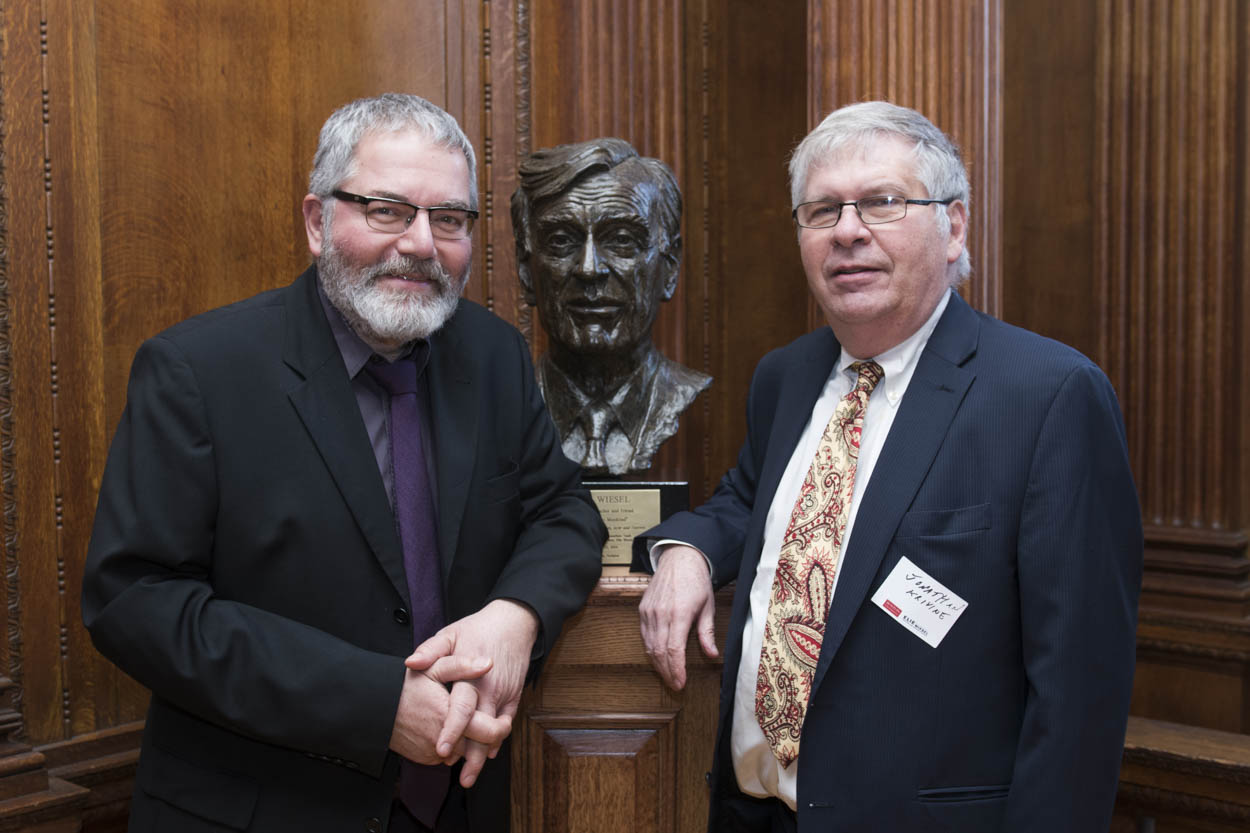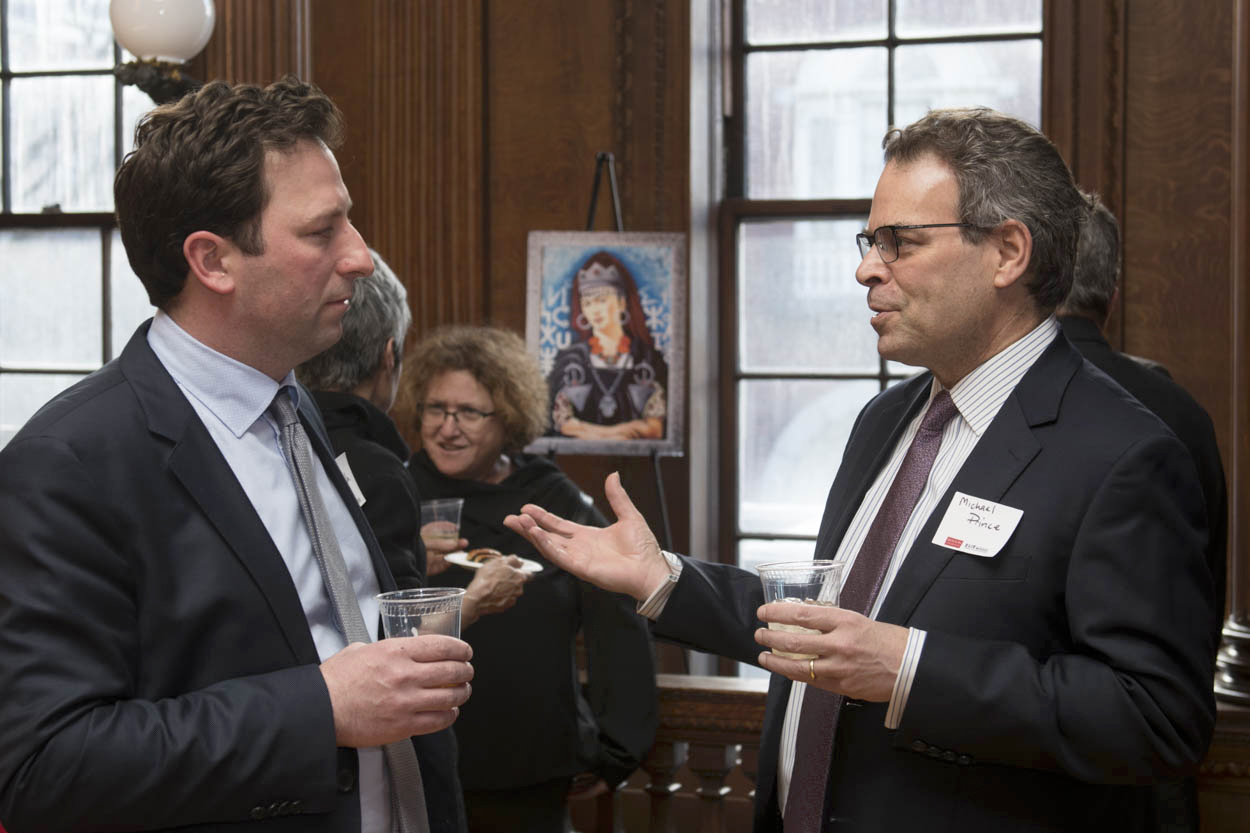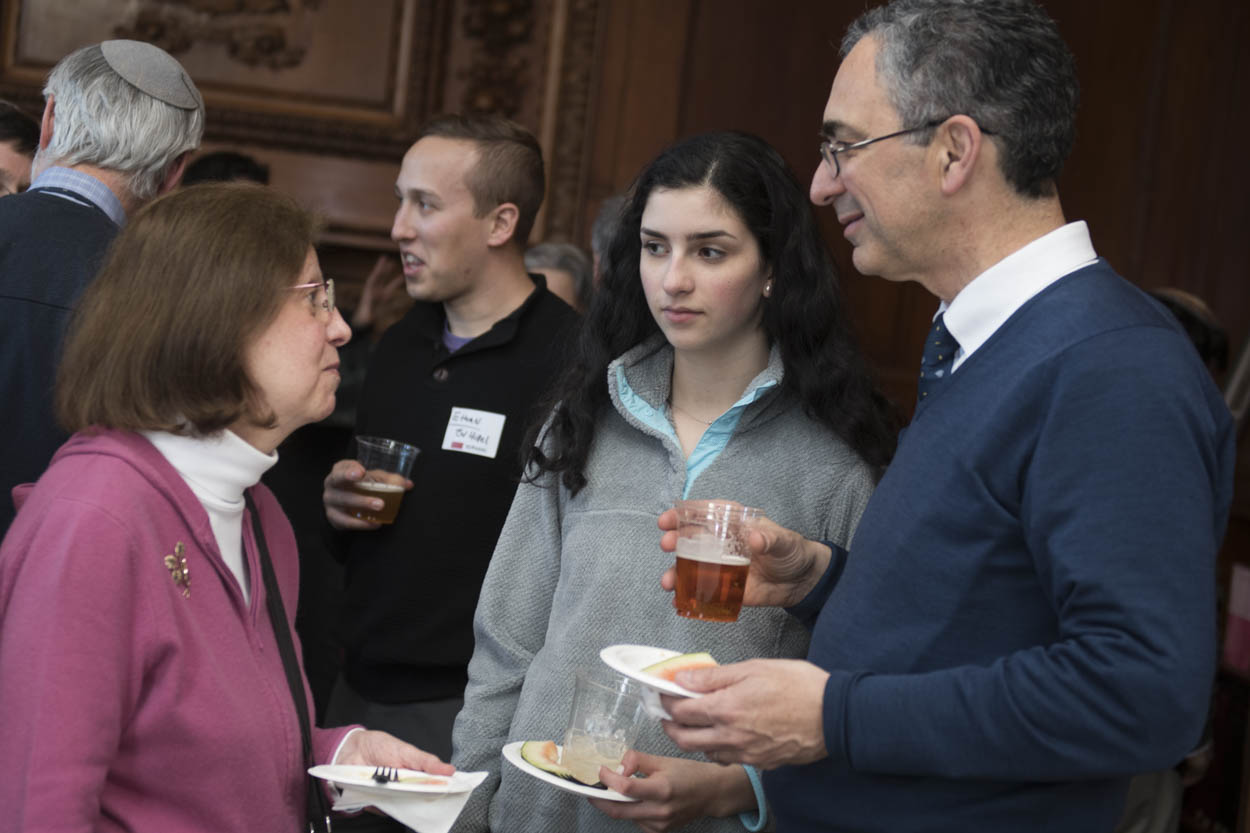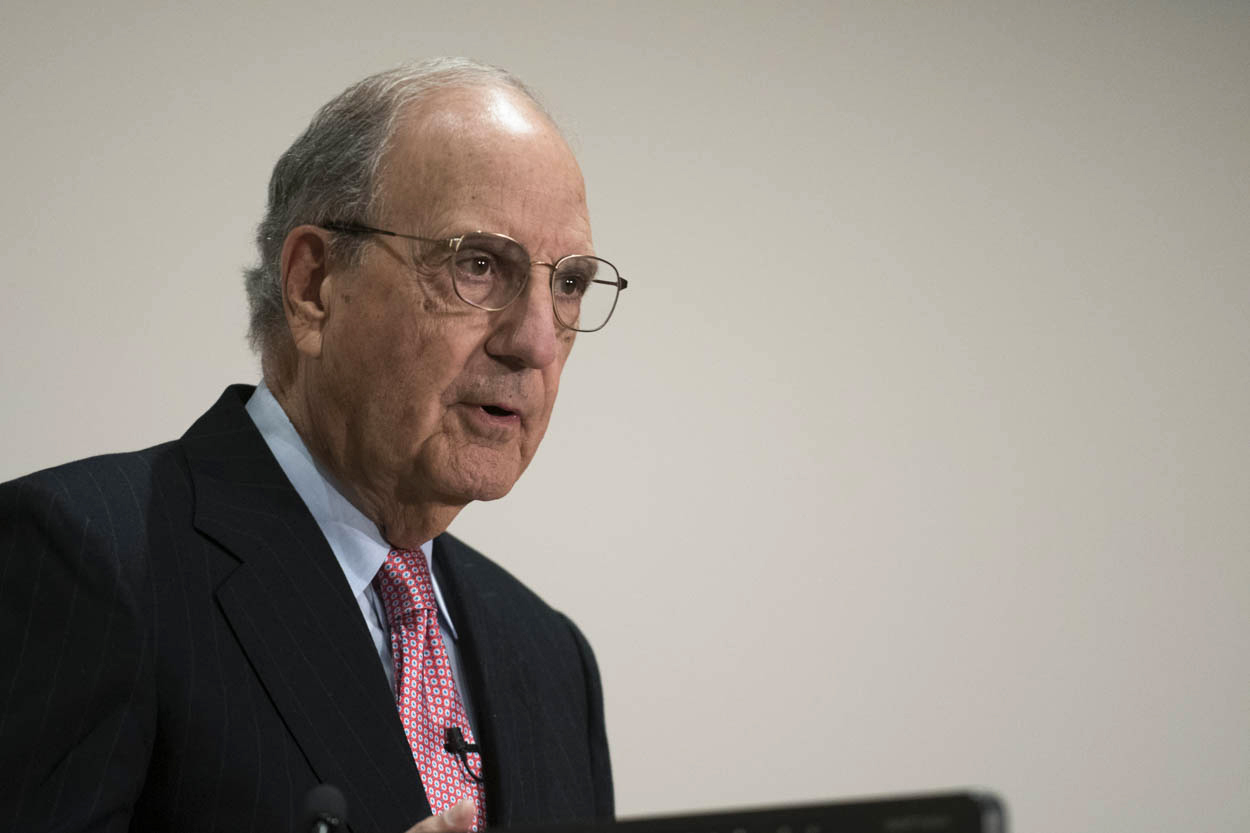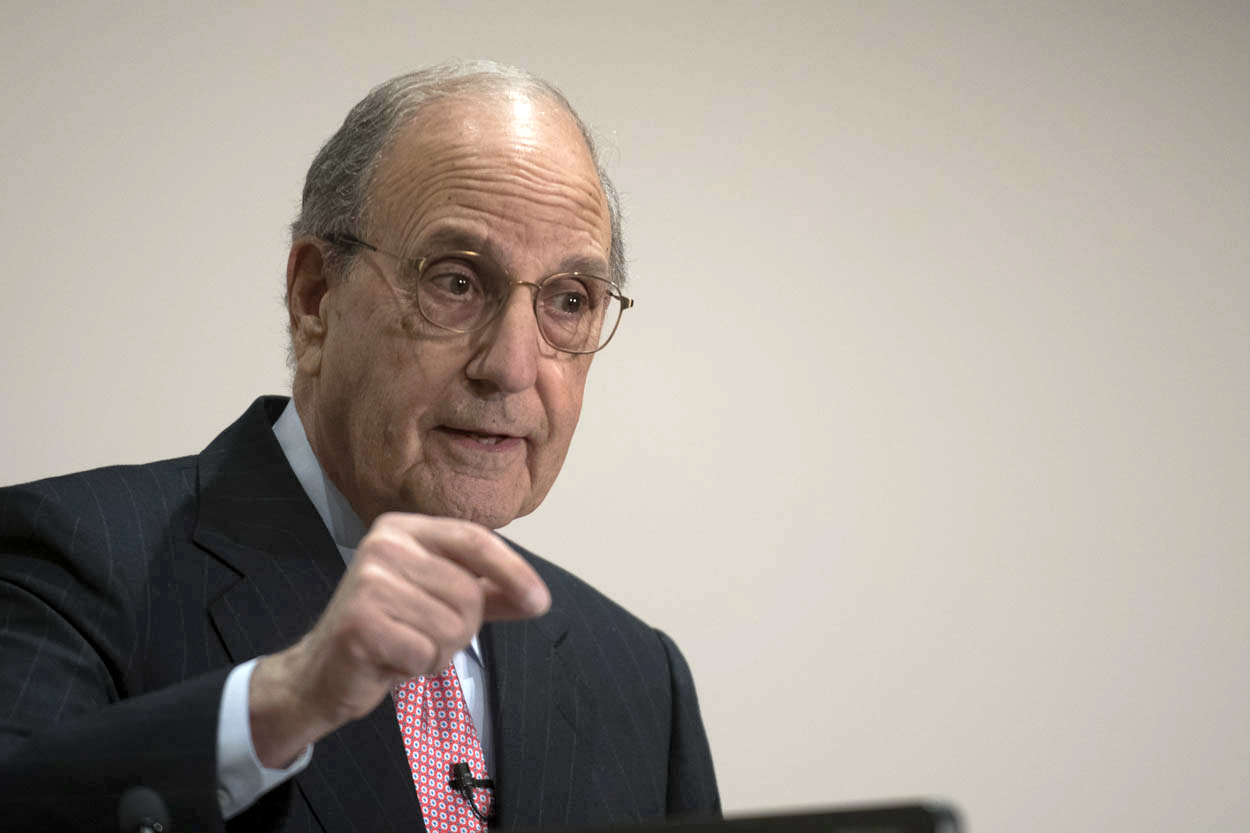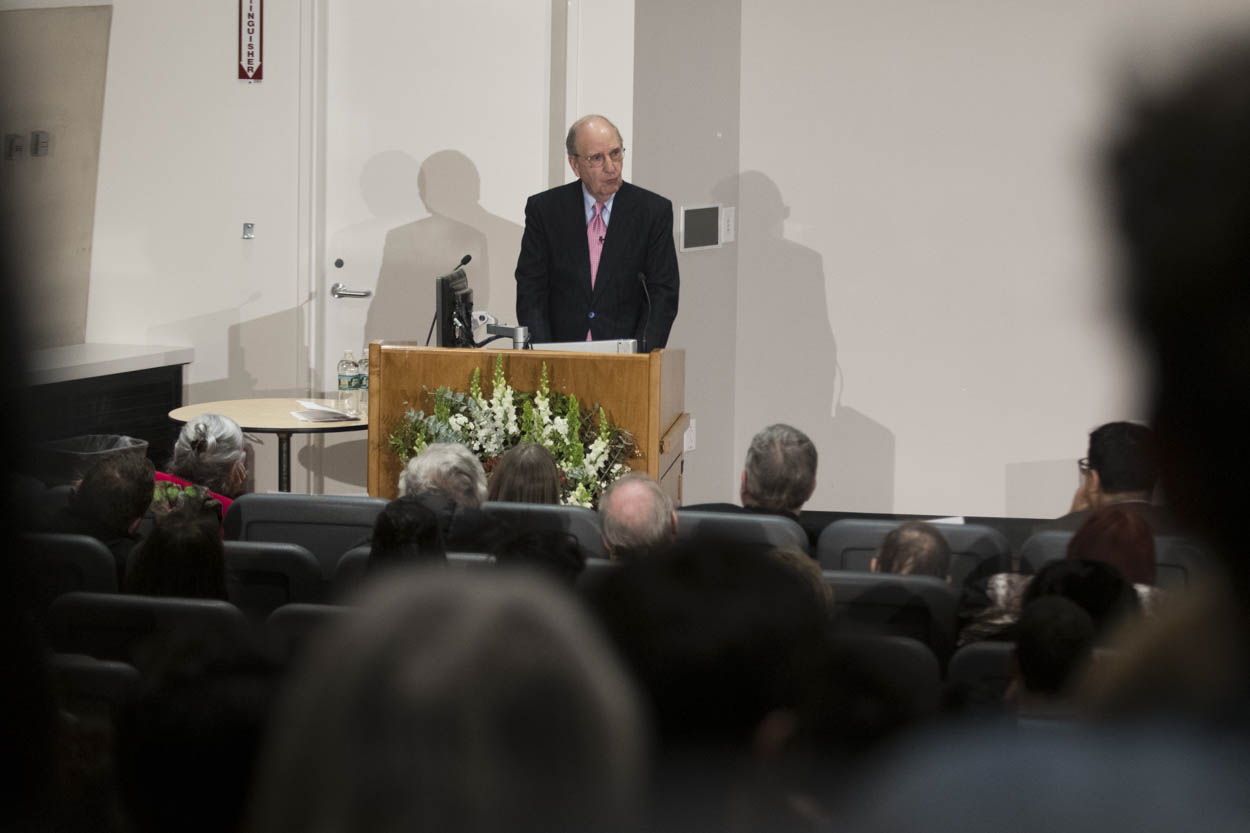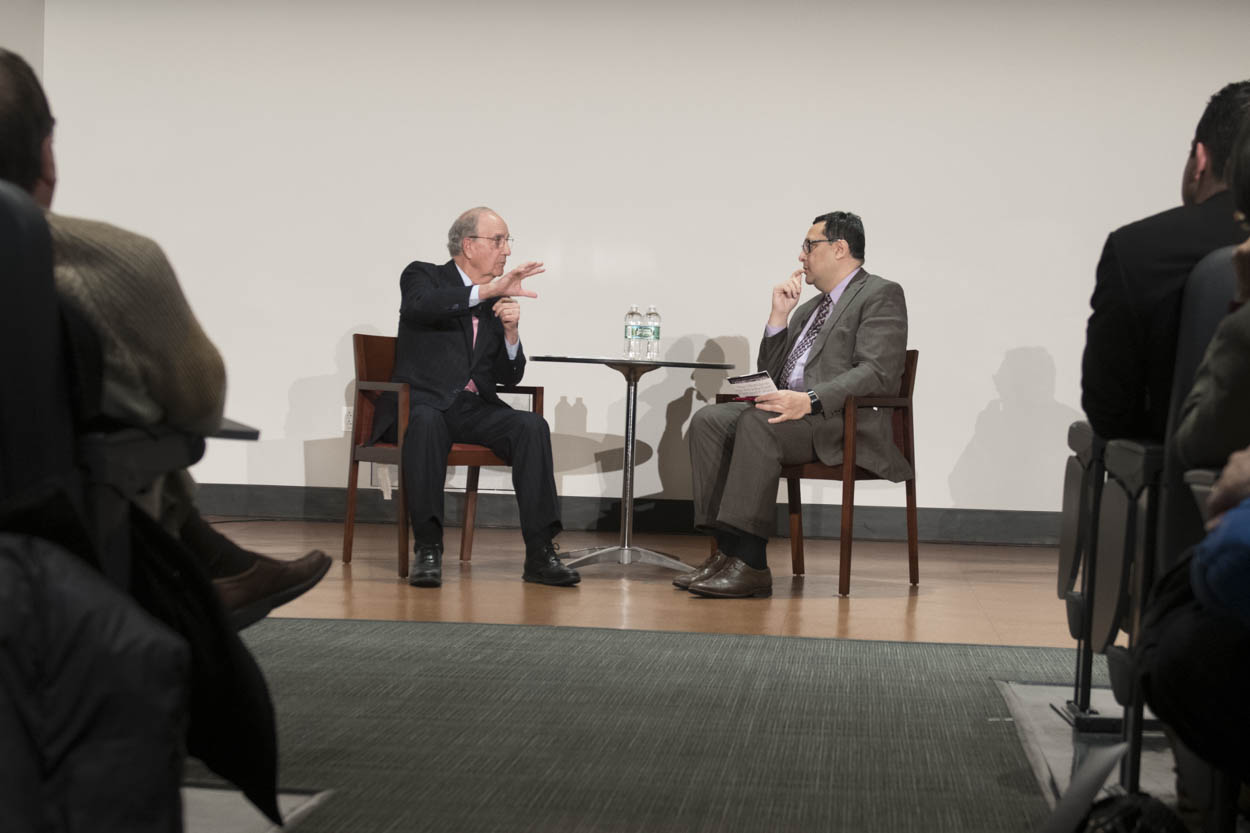The US Role in the Middle East: Past and Future
The Elie Wiesel Center invited former Senate majority leader and foreign policy advisor George J. Mitchell to BU Law Auditorium on March 14 to be the featured speaker of the 2018 Yitzhak Rabin Memorial Lecture, an ongoing lecture series supported by Mr. Jonathan Krivine (CAS ’72).
The lecture began with an opening reception at the Elie Wiesel Center, with faculty, students and guests present to welcome and mingle with Senator Mitchell prior to his lecture. The lecture itself was presented in the Law Auditorium, and began with opening remarks and an introduction by Elie Wiesel Center Director Michael Zank and the College of Arts and Sciences Dean Ann Cudd.
Senator Mitchell began his discussion with an anecdote about humility, telling the story of the book he promoted about the Irish “Good Friday” Peace Agreement of 1998, and of the Irish American woman who thought he was Henry Kissinger and asked him to sign a Kissinger poster anyway. He transitioned into speaking about the namesake of the lecture series, Yitzhak Rabin, and his role as a peacemaker as Israeli Prime Minister. Mitchell hosted Rabin several times during Mitchell’s years in the Senate, and he discussed his fond memories of him as well as the impact of Rabin’s assassination following the Oslo Accords on the course of the Israeli-Palestinian conflict. 
His remarks moved toward a larger discussion about conflict, and the long-standing fear of the end of stability. Fear about the future and the next generations, he said, traces back even to the foundations of democracy in Greece circa 500 BCE. The period of relative global stability following the Second World War, he argued, is coming to an end. He quoted Pope Francis in recognizing the ways religion plays a part in conflicts that are mainly about the wealth and power of certain groups or nations.
Mitchell began discussing the history of the Middle East and the impact of imperialism and religious tension within the region, especially between Sunni and Shiite Muslims. Their religious leaders have, he argued, inflamed the conflict further to the detriment of the people who live there. He spoke about the desire for the people of those countries to have a safe and secure life, whether in the Middle East or as immigrants taking refuge in another part of the world. He urged that Israel and Palestine pursue a beneficial two-state solution to improve the lives of the people there as well as the overall stability in the region.
Following Mitchell’s lecture, he sat down for a discussion and Q&A session hosted by Adil Najam, Dean of the Pardee School for Global Studies, lasting well into the evening. Audience members, several of them students, asked Senator Mitchell about his advice for the current administration, and the differences between how the conflict in Northern Ireland was resolved and how the U.S. may approach the conflicts in the Middle East.
You can watch the full lecture and discussion here: http://www.bu.edu/buniverse/view/?v=1w0hjM0




